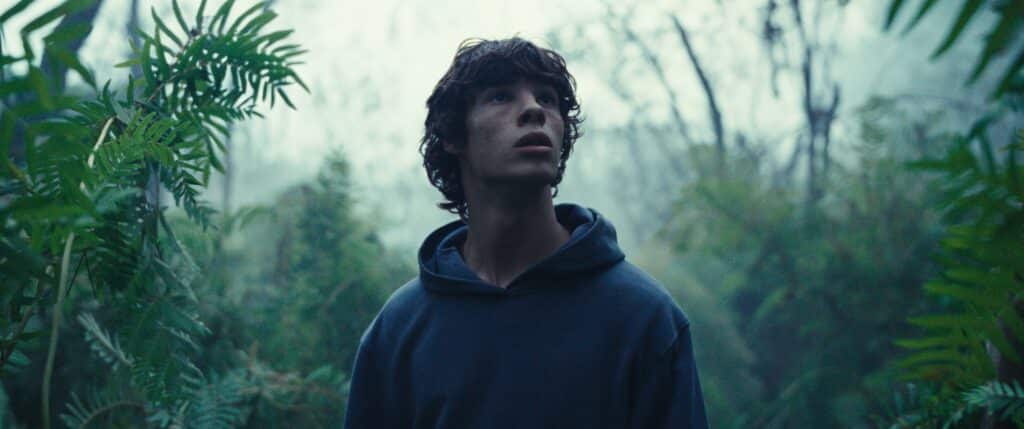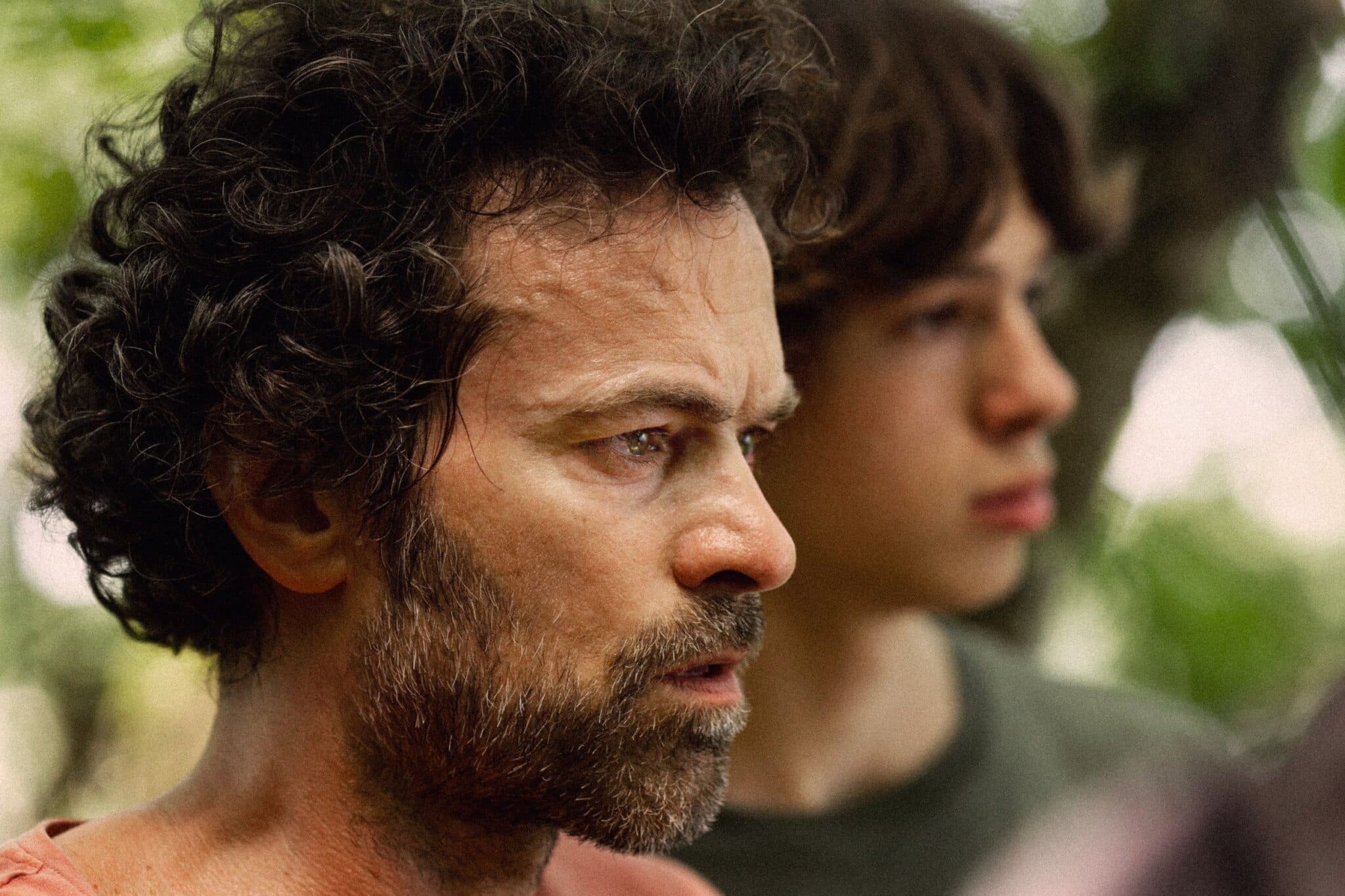
Stretching the imagination and thrilling the senses, The Animal Kingdom is a farsighted look into the future where a new plague has emerged. Written and directed by Thomas Cailley with aid from writer Pauline Munier, the pair have penned a fantastical piece about the limits and capacities of the human body, and what a brave new world we would face should our genetics and evolution suddenly come unhinged. Beautifully shot and bravely told, this is an outlandish story that is anything but ordinary, entwining emotion and mutation in twisted and impressive fashion. With a knockout cast and a story to keep your head spinning, this was a wild watch from the creatures to the concepts.
Stuck in traffic is the place few good stories start, but this one kicks off with a bang. Francois (Roman Duris) is lecturing his son Emile (Paul Kircher) about his junk food habits in standstill traffic, when suddenly, Emile is drawn out of the car and begins to walk towards a disturbance in the road. An ambulance shakes violently before a man is thrown out, hard, but this is no ordinary man: he has wings, among other things. After terrifying the father and son, the creature runs off into the city, leaving the pair to ponder. Finally arriving at their appointment where another creature sits just out of sight (meaning these beings aren’t uncommon), Francois is getting updates on his wife Lana’s condition as she’s been in treatment for this mutating ailment for some time, and it will mean relocating the family to continue her care. It appears she is suffering from the mutations we saw in the opening scenes and the waiting room, a recent, complex condition that has physicians confounded—only she presents as a werewolf type being.
After a heated exchange with her doctor, they are finally allowed to see the patient, but as Francois talks gently and embraces her behind frosted glass, Emile observes the scratch marks covering the walls, and is hesitant to engage. We see once he enters the room why he might have good reason. The family begins their relocation, observing the thick walls surrounding Reception Center South. A new cabana for the pair brings a slight air of optimism, but a new school for Emile brings new challenges and strange encounters with other students. Back home, Francois is swamped with work as a cook, and a windy day breaks into a stormy night, with flashes of lightning illuminating Emile’s nightmares of the creatures. The next day a phone call interrupts clean-up as a tragedy has occurred: the bus carrying patients to the facility has swerved off the road and into a pond. Officer Julia Izquierdo (Adele Exarchopoulos, Blue is the Warmest Color) is immediately involved, telling them the worst has not been confirmed yet, but Lana is still missing. Francois is still hopeful, hanging shirts in the trees hoping Lana’s heightened sense of smell will lead her back to them, but Emile neither believes, nor seems to want, this outcome. Like it or not, the search is on.
This universe created by Cailley is absolutely fascinating, to not only discover mutations in the human genome that could cause us to spontaneously mutate, but to execute the dystopian style society that accepts that what were once people are now treated as the animals they appear to be. Guttural sounds and twisting shapes all seamlessly blend to create creatures, from the familiar animal to the supernatural being. The relationships of the characters to the “critters” is interesting as well; where Francois approaches them with ease, seeing the people they once were and foregoing appearances, we see a mass reaction of disgust or even violence from others (“Who wants to croak a critter?”), and a deep fear that this fate could befall them. Duris and Kircher have phenomenal chemistry as the father and son duo, oscillating and grappling with tumultuous times and disheartening circumstances. Duris is ever the optimist and Kircher is battling physical and emotional demons that are reshaping his existence, while still coping with the search for his mother (a breakthrough when he finally calls for her), whatever version of her it may be. Exarchopoulos (of whom I’m a huge fan) is also dutiful in her role as law enforcement, taking on a more serious authoritative air than some of her previous more femme fatale features.
Camera work here is beautiful, highlighting the natural landscapes, forests and the colorful bursts of vacation cabanas. I have to say though, that effects are in high gear for this piece. To create the many hybrids we see took immense practical and makeup skill, designing humanoid beasts with the soul of a man and the body of a monster. The monstrous part is key as we see that, though they were once people, transformation can leave scars on the patient and those with whom they lost control. The visuals allow you to fully immerse in this alternate reality, letting you imagine what we might do, should another great plague transpire, especially one of this mind-altering magnitude. This reminds me in some ways of both Annihilation and Shin Kamen Rider, with its use of altered life forms or where our own biome or life force has changed the very matter of those that come in contact with it, like the more direct connection of Shin Kamen Rider’s use of human animal hybrids called “Augments”. Innovative, stunning, and no doubt thrilling, The Animal Kingdom is a beautiful piece focused on the fluctuating human condition, the thrill of the unknown, and the boundaries of love. Masterfully directed with top notch effects, this feast for the eyes will leave you spellbound about a world where our new differences are being rejected, tolerated, and in some heart warming cases, embraced.
The Animal Kingdom hit VOD on March 15th, 2024.
